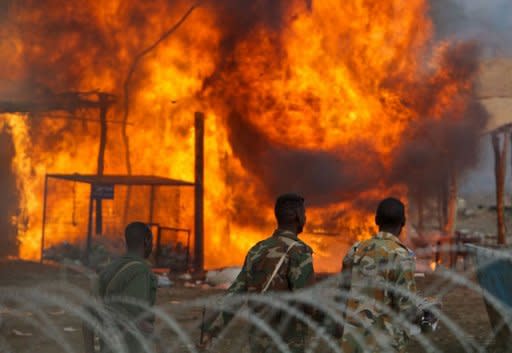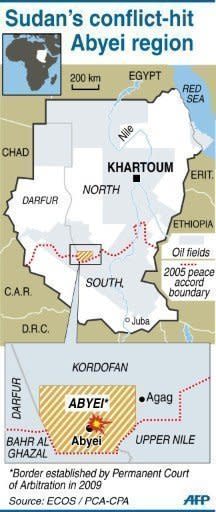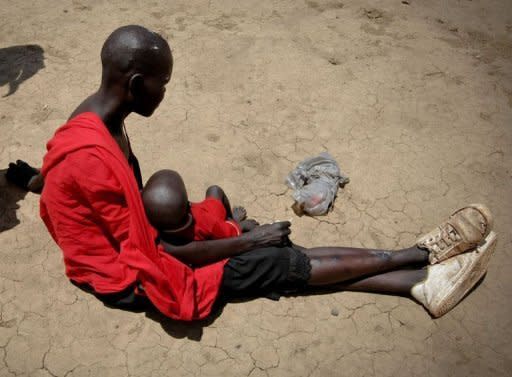'Ethnic cleansing' in Sudanâs Abyei: monitors
Fresh satellite images of Sudanâs flashpoint Abyei area provide evidence of war crimes committed by the northern army, including "state-sponsored ethnic cleansing," monitors alleged on Sunday. Northern troops overran the contested border region last week, drawing condemnation from world powers, who have warned the action is a threat to peace between north and south. Tens of thousands of people fled southwards when Khartoumâs troops and tanks, alongside northern-aligned militia gunmen, poured into the area. Khartoum ordered the official termination of the UN's north-south peacekeeping mission on July 9, the date the south is to declare full independence following a referendum, said Suna state news agency. The Satellite Sentinel Project, which obtained and analysed the images, said they show "extensive and wanton destruction and appropriation of property without the justification of military necessity." The latest set of images show for the first time the extent of the destruction. A third of homes and "civilian structures" in Abyei town have been razed, while a key bridge connecting Abyei with the south has been blown up, it added. That would "make it even harder for tens of thousands of displaced people to return," said the monitoring group, which was set up by Hollywood star and rights activist George Clooney last year. "We focused satellites on Abyei because everyone concerned believed that if the Sudan government would try to undermine the north-south peace, it would do so through Abyei," said Clooney in a statement. "We now have undeniable proof of the Khartoum regime's war crimes in Abyei," he added. The evidence is being sent to the UN Security Council and the International Criminal Court, who have already issued arrest warrants for President Omar al-Bashir on genocide charges in the western Darfur region. "The government of Sudan has committed grave violations of the Geneva Conventions and other war crimes, some of which may also constitute crimes against humanity," the US-based group said in the statement. "The totality of evidence from satellites and ground sources points to state-sponsored ethnic cleansing of much of the contested Abyei region." The northern Sudan Armed Forces (SAF) has defended its role. "SAF intervention in Abyei was legal and legitimate, and comes within their responsibility to protect the country, its sovereignty and security," said the Sudan Media Center (SMC), a website widely believed to be close to the security forces. In a statement late Saturday, Suna news agency said Khartoum's government has "officially notified the United Nations of the end of the term of the United Nations Mission in Sudan (UNMIS) on July 9." At least 39,000 people have fled Abyei, where there were still reports of "sporadic gunfire, looting, and burning of tukuls (thatch huts)," said a UN humanitarian assessment report released Sunday. "Requirements in food, water, health, and shelter are particularly urgent," it said, adding UN efforts were being hampered by "looting of relief supplies by the military" which left one aid worker seriously injured. Senior commanders of both north and southâs armies met in the Ethiopian capital Addis Ababa on Saturday "in a bid to find solution to the crisis," SMC said. Meanwhile Khartoum's chief Abyei negotiator Al-Dirdiri Mohammed Ahmed said he expected efforts to hold a presidential meeting of Sudanâs two leaders in the next few days "would be successful," the SMC added. The meeting would be mediated by an African Union panel led by South Africa's former president Thabo Mbeki, he added. South Sudan's vice president Riek Machar is also in Khartoum to try to "ease tensions" over the area.




